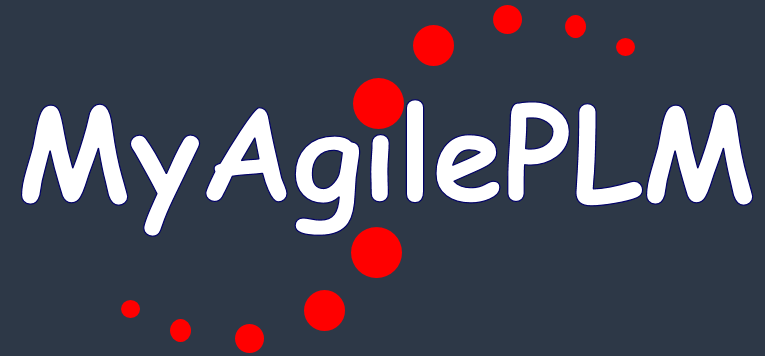Last month, GrabCAD hosted the IDSA and Sustainable Minds ‘Boast Your Toast’ Ecodesign Challenge. This challenge encouraged designers to reimagine the toaster with environmental performance as a key component of the design.
And the submissions were phenomenal (we go into more detail below).
“This challenge appropriately reflected the three main themes of our inaugural Sustainability Deep Dive conference,” explains Stephan Clambaneva, one of the Sustainability Deep Dive emcees and Sections Director on IDSA’s Board of Directors. Stephan also came up with the idea, concept and initiative for the challenge. “It married ecodesign strategies with sustainability tools such as Sustainable Minds LCA software, great industrial design, and the overall great story of the product experience.”
But this wasn’t the only challenge IDSA and GrabCAD has partnered on. Founded in 1965, Industrial Designers Society of America (IDSA) is one of the oldest and largest industrial design associations in existence. IDSA includes professional and student chapters across the United States and abroad, as well as Special Interest Sections such as Ecodesign for industrial design professionals who are known to design with business, culture, society, and the planet in mind.
GrabCAD has enjoyed working with Stephan and IDSA on past challenges, such as:
This challenge has had a major impact in helping participants understand how to design with environmental performance in mind.
“Environmental performance is now a standard criteria in product development, just like functional performance, cost, ergonomics, aesthetics, and safety,” explains Terry Swack, CEO of Sustainable Minds. “There are real business drivers creating market demand.”
Environmental Performance Software
To keep the focus on environmental performance, participants used Sustainable Mind’s Eco-concept + Life Cycle Assessment (LCA) Software. This software measures and calculates the environmental performance of your design:
- Benchmarks and compares quantified estimates of environmental performance for non-experts to integrate into product development.
- Standardized system for credibility & comparison.
- Generates easy to interpret and share graphical results
“LCA is used as a tool to assess the environmental impacts of a product or process throughout its life cycle, from the extraction of raw materials through to processing, transport, use, and end of life,” explains Shruti Parikh, IDSA, Sustainability Consultant, Noukraft. “The life cycle includes all activities that go into making, using, and disposing of a product, and the assessment tool helps to identify the resource intensive centers and design to mitigate the environmental impact.”
By using this thinking and software, users consistently include life cycle thinking and environmental performance improvement into their design processes. Achieving the best environmental performance can result in lower manufacturing costs and increased revenues.
As we’ve mentioned before, becoming more energy efficient is a growing trend in manufacturing and design technology. More and more manufacturers want to be more energy efficient since energy consumption can come at great cost. Software and technology such as LCA software can only help businesses determine where power can be saved.
“When I was studying at Pratt, I was introduced to the Sustainable Minds software,” explains Shane Chen, third place winner. “I like it because it provides a very systematic way of evaluating each material and manufacturing process used on a product. Sometimes I get surprised by how much the results differ from our expectations, which is good because it means it helps us find something we overlook during the design process and gives us a chance to redirect in an early stage of product development.”
For second place winner Jeswin P George, the software is helpful for not only designing new products but also improving existing products:
“The Software taught me that it is not always about new products, but it’s about adapting existing products to sustainable ecosystems by redefining certain processes and material selections that helps users ease themselves to the change, as it does not require changing habits.”
The Challenge Results
All the jurors were enormously impressed by the hard work put in by all the entrants. The overall quality of the submissions was extremely high. And the winners are…
First Place: Contemporary Glass Toaster by Mary Friedl
Second Place: Toaster Design by Jeswin P. George
“In many cases, simple products we use in our day-to-day life have more potential than just being a single-use product; they have serious possibilities to be more energy-efficient. In this project, I was aiming at optimum usage of energy produced from a toasting machine by using it to toast bread and also to heat up butter, which is always used with toasted bread. This will prevent wasting energy by using another equipment to heat up the butter.”
Third Place: Ding Toaster by Shane Chen and Shih-Hsuan Huang
“The idea of the Ding Toaster originated through talking,” explains Shih-Hsuan Huang. “Shane and I shared the daily toasting experiences we each have. We found several common problems caused by those traditional toasters. We looked into the history of toaster development, which was very inspirational. We also launched a user experience survey to gather more information about user preferences and expectations. With the information above, we started brainstorming.”
The Judging Process
According to the judges, selecting these winners was not easy. There were four rounds of review to ensure each design met all the submission requirements. Entries that did not include the PowerPoint presentation and/or no evaluation in Sustainable Minds Eco-concept + LCA Software were disqualified.
From 52 entries cut down to 10 finalists, 3 winners and 4 special mentions, the criteria was challenging to meet:
- Effective use of ecodesign strategies
- Comprehensive life cycle assessment (LCA) model
- Aesthetics
- Compelling story
- Functionality/usability
To learn more about the review process visit the Challenges page: Boast Your Toast Design Challenge. You can also try the LCA Software for yourself with a free trial.





Be the first to post a comment.